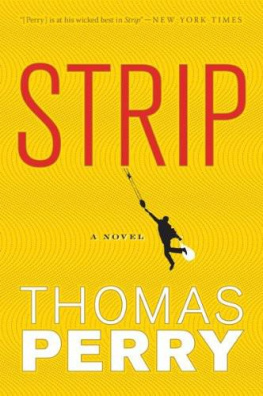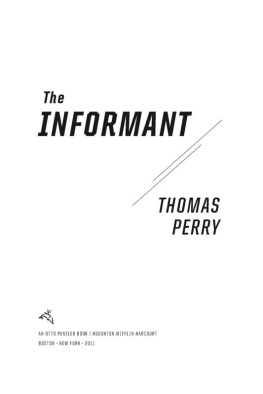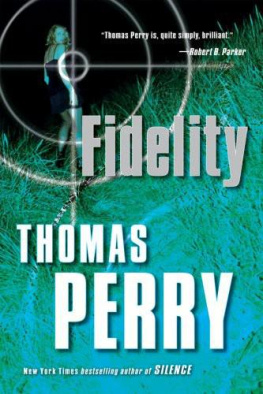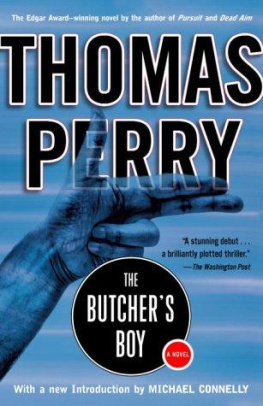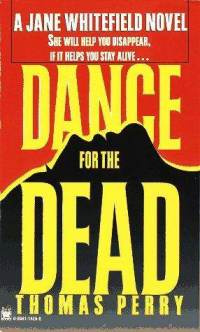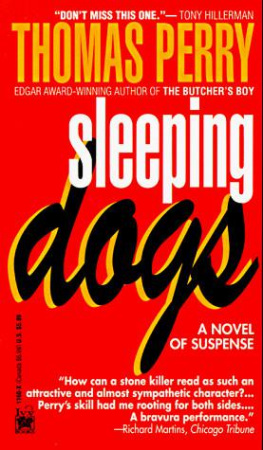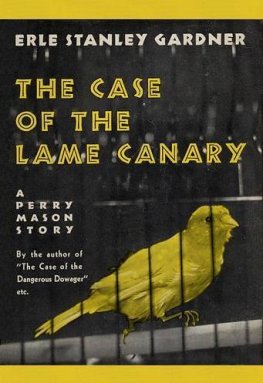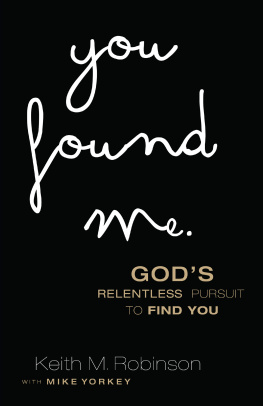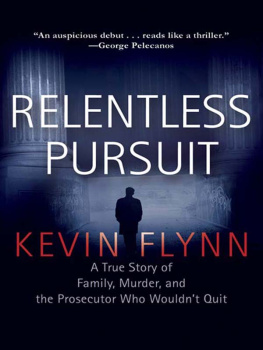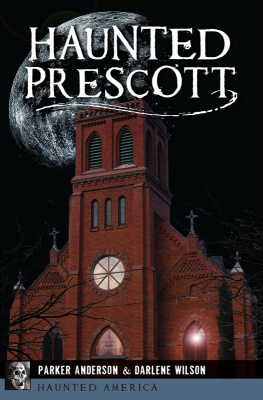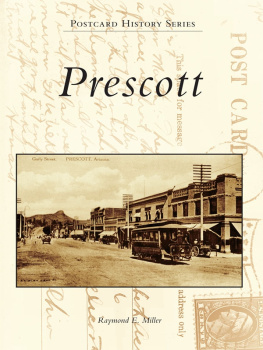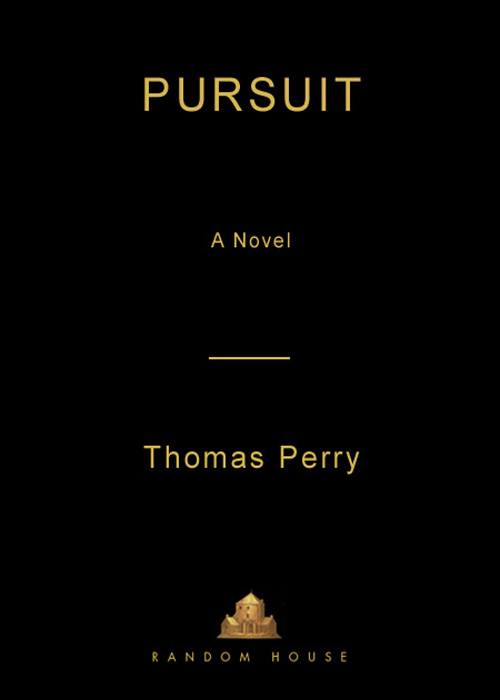
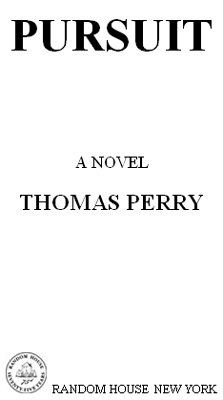
CONTENTS
To Robert Lescher
ACKNOWLEDGMENTS
Im grateful to my editor, Kate Medina, for her encouragement and helpful suggestions on this and earlier books.
PURSUIT
Daniel Millikan looked down at the thirteenth corpse. This one was at the back of the restaurant kitchen, dressed in a white uniform with a ridiculous paper hat on his head that was supposed to keep his hair out of the food, and a long apron that had been filthy even before the blood had gushed down to soak it red. Millikan corrected himself. This was the first corpse, and the one a few feet from it was second. The others, logically, came later.
He bent to let the light catch the tile floor just right so he could tell if there had been any wet footprints in the kitchen, but there had not. There were none in the dining room either: the killer had been here, done his work, and locked the door behind him before the rain had begun. Time in the restaurant had been stopped athe would guessaround nine-thirty. The light, misty spring rain had not reached Louisville and begun to gleam on the street pavements until late at night, after Daniel Millikan had finished his speech at the conference and retired to his hotel downtown. He had still been awake and noticed it when the rivulets began to run down the window of his room. He had been frustrated because he needed to catch the plane back to California at seven tomorrow morning, but he had been too agitated and restless to sleep.
He never felt tense while lecturing his own students at the college in Los Angeles, but the audience tonight had been people he thought of as grown-ups. They were serious men and women of his own generation who had heard of him andat least some of themread his books. They had come to take a look at the expert... or, more accurately, at the alleged expert. They had listened to his lecture on the interpretation of homicide evidence with a polite attentiveness that he could only call professional. In the faces of the grown-ups there was always a reserve, something they held back or maybe even disguised, possibly because they had worked homicides and, unlike Millikan, expected to do it again.
He had considered pouring one of the little bottles of scotch from the bar cabinet into a glass, diluting it with tap water, and swallowing enough to help him sleep. He was glad that the two cops had arrived in the lobby and rung his room before he had done it, instead of after. Lieutenant Cowans voice on the telephone had been courteous but confident: after delivering that particular lecture, Millikan could hardly say he would not dress and go with the police to look at a homicide scene. Right now, he was glad that his brain was functioning quickly and efficiently, but he knew that when he got back to the hotel, he was going to want that drink.
Millikan studied the angle of the body, judged the steps from the back door: ten to twelve. It was easy to see where the boning knife had come from. The row of black-handled kitchen knives in the gleaming stainless steel rack had only one gap. The killer had slipped in the back door and silently cut the dishwashers throat with the knife he had found. That was a disquieting sign. This killer had been right about too many things: that there would be a weapon where he could reach it; that it would be at least as good and as sharp as anything he could buy and carry; that it would not be of any use to the police, because tracing it led only to the rack on the wall; that he would be quiet enough to take twelve paces unheard and formidable enough to fall on a healthy, strong man in a brightly lighted room and kill him without so much as knocking over a pan or letting him cry out. Millikan judged the distance from the back door to the body againa good thirty feet. Maybe this killer was invisible.
Millikan looked in the other direction, toward the swinging door to the dining room. After the dishwasher was dead, the killer had dropped the knife into the soapy water in the sink. Then one of the waiters had come in from the dining room. The killer had not tried to reach into the sink to retrieve the knife or pulled out his gun. He had simply broken the waiters neck, let his body fall into the blood that was already draining onto the tile floor beside the first man, and gone on.
He had walked the next ten feet to that door, stepped into the dining room, and started shooting. The shooting should have been comforting to Millikan, because that was what lots of lifelong losers had chosen as their final act. In those cases it was half murder and half suicide, because they were trying to induce the police to come and put them out of their misery. If the cops didnt appear right away, they usually shot themselves. But this time, the shooting was full of signs that something else had been going on.
The killer had not simply arrived at the restaurant, burst in, and pulled out a gun. He had come first to the front of the building, put a chain and padlock on the front door, and covered the window with a CLOSED sign before he had gone around to the back. That was disturbing. It had been meant to keep new customers from coming in, of course, but it also ensured that once the shooting started, the only way out would be to step over the shooter. This killer had known too much about the way people would behave: they wouldnt even try. The ones near the front door would grasp the handle and get the bad news. The ones farther from it would go lowtry to hide behind tables and chairs and each otherand a few would just be paralyzed, too amazed to do anything but let their jaws drop open. This killer had known what to expect.
The shooter had selected. Probably the first round was the one he put through the forehead of the man at the third table. The position of the body indicated the man hadnt dodged or ducked, just looked up and died. The others had come after. They were sprawled, hit anywherebacks, faces, whatever was visiblewhen they ran or crouched. Millikan had one more thing to look for. He walked along the far wall, then stood at the front door, examined the backs of seats and the vinyl upholstery of the booths. He lingered for a moment over the spot where the bodies of the two children lay.
Lieutenant Cowan was at his elbow. Cowan was aware that Millikan had made the full tour now, and that he had seen it all. What do you think? he asked. Cowan seemed to be in his early thirties, but he had that red-faced, apoplectic look that two of Millikans uncles had developed when he was a child. They had looked as though it would take only one more aggravating circumstance to make them explode. Millikan pursed his lips, then looked down again. I dont envy you. I think youve got the genuine article here.
What do you meanthe genuine article? A random shooter? We figured out that much. All we had to do was count.
Millikan shook his head. Not a nutcase. A pro.
Cowan seemed to be struggling to keep his reaction from being impolite. Millikan was doing the department a favor, and he was an important man, a name. Why would a professional killer come in and do all these people in a restaurantlittle kids, like this? Did somebody pay him for the first dozen people he saw?
He wants you to think hes a guy who wears camouflage fatigues around the house. He wants you to think that tonight he got a big headache and heard Jesus tell him he wanted new angels. But that isnt who he is. He came for one of these people. Just one. My guess would be this guy over here with his brain blown out of the back of his skull. He shot him first.
Next page

